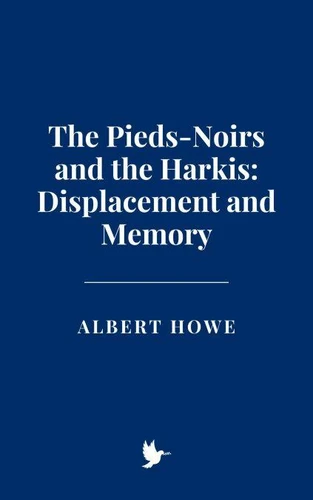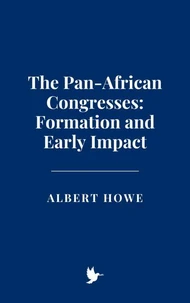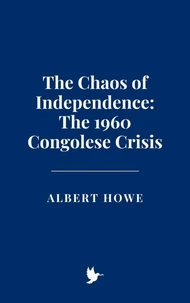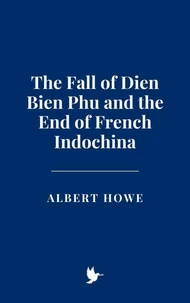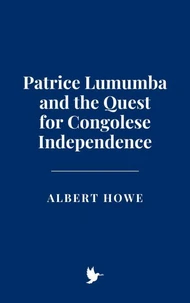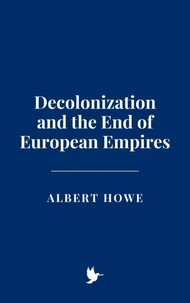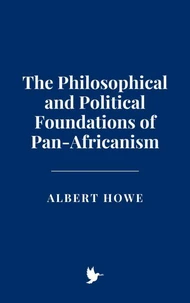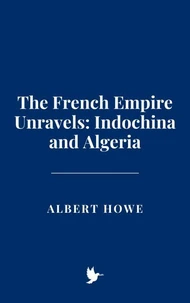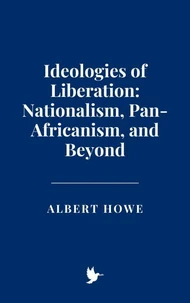The Pieds - Noirs and the Harkis: Displacement and Memory
Par :Formats :
Disponible dans votre compte client Decitre ou Furet du Nord dès validation de votre commande. Le format ePub est :
- Compatible avec une lecture sur My Vivlio (smartphone, tablette, ordinateur)
- Compatible avec une lecture sur liseuses Vivlio
- Pour les liseuses autres que Vivlio, vous devez utiliser le logiciel Adobe Digital Edition. Non compatible avec la lecture sur les liseuses Kindle, Remarkable et Sony
 , qui est-ce ?
, qui est-ce ?Notre partenaire de plateforme de lecture numérique où vous retrouverez l'ensemble de vos ebooks gratuitement
Pour en savoir plus sur nos ebooks, consultez notre aide en ligne ici
- FormatePub
- ISBN8231068005
- EAN9798231068005
- Date de parution01/08/2025
- Protection num.pas de protection
- Infos supplémentairesepub
- ÉditeurWalzone Press
Résumé
The Pieds-Noirs and the Harkis - Displacement and Memory offers a powerful, deeply human exploration of one of the most turbulent chapters in modern history: the mass exodus of European settlers and Algerian loyalists from a fracturing colonial world. Drawing on rich historical analysis, personal narratives, and cultural insight, this book unravels the intertwined destinies of the Pieds-Noirs and the Harkis-two communities forever marked by exile, loss, and contested legacies.
From the brutal Algerian War of Independence to the chaotic waves of displacement that followed, this volume reveals the profound challenges these displaced populations faced as they struggled to rebuild lives amid rejection, marginalization, and the difficult politics of memory in metropolitan France. Through meticulous research and vivid storytelling, it captures the enduring scars of colonialism-how trauma travels across generations, how identities are forged and fractured, and how memory itself becomes a battlefield.
Engaging with literature, film, and public commemoration, the book also delves into how cultural expression and political activism have shaped collective remembrance and identity. It confronts the complexities of reconciliation, the quest for justice, and the unresolved questions that continue to echo through contemporary French and Algerian society. This is an essential work for anyone seeking to understand the human cost of empire's end, the intricate dynamics of migration and belonging, and the powerful ways in which history is remembered-and sometimes forgotten.
Both timely and timeless, The Pieds-Noirs and the Harkis offers a compelling narrative of displacement, resilience, and the quest for recognition in a world still grappling with its colonial shadows.
From the brutal Algerian War of Independence to the chaotic waves of displacement that followed, this volume reveals the profound challenges these displaced populations faced as they struggled to rebuild lives amid rejection, marginalization, and the difficult politics of memory in metropolitan France. Through meticulous research and vivid storytelling, it captures the enduring scars of colonialism-how trauma travels across generations, how identities are forged and fractured, and how memory itself becomes a battlefield.
Engaging with literature, film, and public commemoration, the book also delves into how cultural expression and political activism have shaped collective remembrance and identity. It confronts the complexities of reconciliation, the quest for justice, and the unresolved questions that continue to echo through contemporary French and Algerian society. This is an essential work for anyone seeking to understand the human cost of empire's end, the intricate dynamics of migration and belonging, and the powerful ways in which history is remembered-and sometimes forgotten.
Both timely and timeless, The Pieds-Noirs and the Harkis offers a compelling narrative of displacement, resilience, and the quest for recognition in a world still grappling with its colonial shadows.
The Pieds-Noirs and the Harkis - Displacement and Memory offers a powerful, deeply human exploration of one of the most turbulent chapters in modern history: the mass exodus of European settlers and Algerian loyalists from a fracturing colonial world. Drawing on rich historical analysis, personal narratives, and cultural insight, this book unravels the intertwined destinies of the Pieds-Noirs and the Harkis-two communities forever marked by exile, loss, and contested legacies.
From the brutal Algerian War of Independence to the chaotic waves of displacement that followed, this volume reveals the profound challenges these displaced populations faced as they struggled to rebuild lives amid rejection, marginalization, and the difficult politics of memory in metropolitan France. Through meticulous research and vivid storytelling, it captures the enduring scars of colonialism-how trauma travels across generations, how identities are forged and fractured, and how memory itself becomes a battlefield.
Engaging with literature, film, and public commemoration, the book also delves into how cultural expression and political activism have shaped collective remembrance and identity. It confronts the complexities of reconciliation, the quest for justice, and the unresolved questions that continue to echo through contemporary French and Algerian society. This is an essential work for anyone seeking to understand the human cost of empire's end, the intricate dynamics of migration and belonging, and the powerful ways in which history is remembered-and sometimes forgotten.
Both timely and timeless, The Pieds-Noirs and the Harkis offers a compelling narrative of displacement, resilience, and the quest for recognition in a world still grappling with its colonial shadows.
From the brutal Algerian War of Independence to the chaotic waves of displacement that followed, this volume reveals the profound challenges these displaced populations faced as they struggled to rebuild lives amid rejection, marginalization, and the difficult politics of memory in metropolitan France. Through meticulous research and vivid storytelling, it captures the enduring scars of colonialism-how trauma travels across generations, how identities are forged and fractured, and how memory itself becomes a battlefield.
Engaging with literature, film, and public commemoration, the book also delves into how cultural expression and political activism have shaped collective remembrance and identity. It confronts the complexities of reconciliation, the quest for justice, and the unresolved questions that continue to echo through contemporary French and Algerian society. This is an essential work for anyone seeking to understand the human cost of empire's end, the intricate dynamics of migration and belonging, and the powerful ways in which history is remembered-and sometimes forgotten.
Both timely and timeless, The Pieds-Noirs and the Harkis offers a compelling narrative of displacement, resilience, and the quest for recognition in a world still grappling with its colonial shadows.

